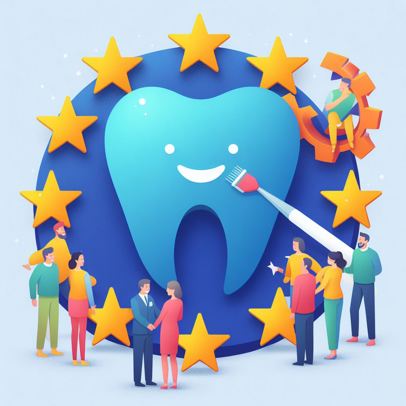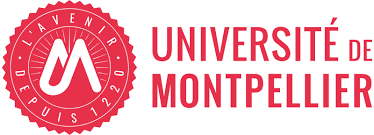

The reason to start this project is the need for better health promotion. A healthy lifestyle, including maintaining good oral hygiene, is an essential part of people's overall health and contributes to well-being and quality of life. However, unhealthy lifestyles (and oral diseases as a consequence of poor oral hygiene) are a major health problem in Europe. This is especially the case for vulnerable patient groups such as frail elderly people, people with severe mental disorders and people with intellectual disabilities. These patient groups require tailored healthcare. Unfortunately, it seems that professionals in oral care, nursing and social work often lack the knowledge and skills required for effective interprofessional healthcare aimed to improve patient’s lifestyle and health.
The project’s overall objective (impact) is to promote health of vulnerable patients educating on interprofessional collaboration among students enrolled in schools of oral health, social work, and nursing. In this project, we focus on the following vulnerable patients: frail elderly people, people with severe mental illness and people with intellectual disabilities.
In this project, we aim to develop three educational modules to enhance the programs of Dental Hygiene (Mondzorgkunde), Nursing (Verpleegkunde), and Social Work. These modules will assist students in learning more and collaborating better, with the goal of improving the oral health of vulnerable patients.
We will integrate interprofessional collaboration into the three newly developed educational modules. Students will engage in joint assignments and exchange knowledge, focusing on understanding each other's fields and collectively addressing issues.
Students will learn to utilize digital technologies to promote interprofessional communication, such as through the use of online platforms where they discuss case studies together.
Additionally, we will actively involve dental professionals, nurses, and social workers in the educational process. We will have them participate in workshops to share their practical experience. Evaluations will be conducted to examine whether the modules meet the desires and needs of both students and professionals. If necessary, we will adjust the modules based on feedback from students and professionals.
"Integrated care, innovative education: together we transform healthcare for everyone."
The project promotes interprofessional education by bringing together students from different disciplines, such as Dental Hygiene, Nursing, and Social Work. This emphasizes the importance of collaboration and understanding each other's expertise, which is a valuable skill for future healthcare professionals. The outcomes are explained below.
(1) Integration of the e-learning into the curriculum of European educational institutions/schools
The e-learning developed by this project will be integrated into the curriculum of the participating schools. Additionally, the content of the e-learning will be available for the public, allowing other schools to incorporate it into their curricula too.
(2) International collaboration, shared knowledge, use of innovations
This project encourages international collaboration between schools and organizations. Through the international partnership, teachers share knowledge and use new technologies and innovations to develop education, and therefore develop new insights together and exchange best practices. This is enriching for both students and teachers.
(3) Improved knowledge & skills of students
The project addresses the lack of knowledge and skills needed for interprofessional collaboration among oral health professionals, nurses and social workers regarding vulnerable patient groups. It fills training gaps and provides a more comprehensive and integrated learning experience.
(4) Better quality of patient care
Ultimately, the project will lead to healthcare professionals who are better prepared to respond to the specific needs of frail elderly, people with serious mental illnesses and people with intellectual disabilities. The project enables future healthcare professionals to develop a holistic approach in caring for these vulnerable patient groups, improving their ability to collaborate, develop joint treatment plans, and provide more effective care. This, in turn, will benefit the overall quality of patient care.
(5) Inclusive education addressing health inequalities
By focusing on vulnerable patient groups, the project contributes to the development of education that is inclusive and considers diversity in health care needs. It promotes an approach that is appropriate for all patients, regardless of background or health status, addressing health inequalities.

The ultimate outcome (expected impact) is to create a more integrated and effective approach to care and health promotion for these vulnerable patient groups. To achieve this outcome, we are creating an e-learning, consisting of three educational modules for dental/oral hygiene, nursing, and social work students. These modules will educate students on how to collaborate inter-professionally, and to provide healthcare that contributes to improving lifestyle of patients, i.e. health promotion (output).
Through these modules, students will gain knowledge, skills, and understanding of each other's areas of expertise, enabling them to collaboratively promote (oral) health in patients. Eventually, this will contribute to positive outcomes in patient’s wellbeing.
Here you can find an overview of the educational objectives established during the transnational meeting in Lisbon.
This project includes online and transnational meetings and meetings with an advisory group:
Online and transnational meetings
The consortium meets yearly in person, during transnational project meetings and weekly online via videocalls to discuss about the development, content and progress of the e-learning. <Link to insite-interview Lissabon and Montpellier?>
Advisory Group meeting
In order to involve the field, we created an advisory board, consisting of representatives from the field, including Dr. Benoit Varenne, Dental Officer of the WHO and Dr. Gitana Rederiene, president of European Federation of Dental Hygienists. <names linked to LinkedIn>
This advisory board provides feedback on content and the development of the e-learning during feedback and evaluation sessions. During these meetings, the objectives, outcomes, and progress of the project are discussed, and feedback on the content of the e-learning program and impact in gathered. These meetings also provide an opportunity to identify specific needs and challenges in the field.
In this project, we closely collaborate with a number of national and international researchers and partners. These include Claar Wierink, lecturer-researcher in the dentistry program at ACTA; Nicolas Giraudeau, lecturer-researcher in the dentistry program at the University of Montpellier; Luís Luís, lecturer-researcher in the Public Health program at Instituto Politécnico de Leiria; and Henrique Luís, lecturer-researcher in the dental care program at the University of Lisbon, Portugal.



